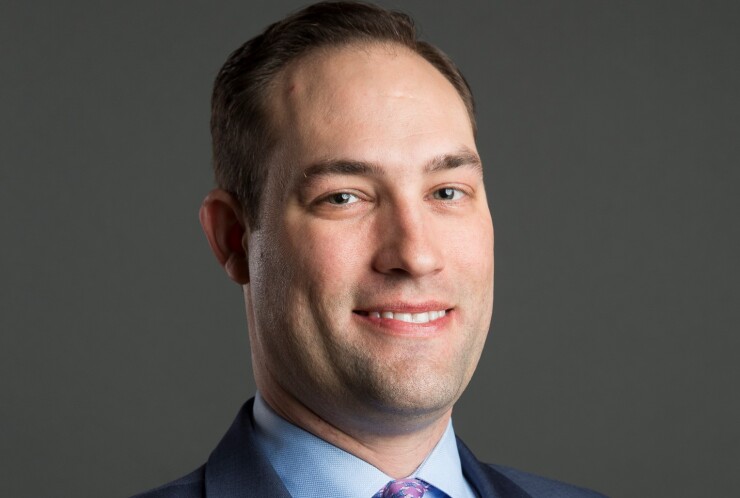More than a year after Winter Storm Uri battered the south-central U.S., the financial recovery — in the form of long-term debt — is just ramping up.
Oklahoma is prepping a series of securitized borrowings over the next several months that will total $3 billion of taxable debt and debut a new credit in the state.
Oklahoma’s deals follow a similar $908 million financing from a Texas-based member-owned electric co-op that was

Louisiana and Arkansas have also passed securitization laws for storm costs, and last week the Louisiana Public Service Commission approved Entergy Louisiana’s request to float $3.2 billion in securitized bonds that will be used in part to recover money spent during Uri.
The transactions are all aimed at allowing major investor-owned utilities to recover costs from fuel prices that spiked during Winter Storm Uri. The storm hit parts of the Great Plains in February 2021, bringing cold and icy conditions that knocked natural gas production offline amid a steep escalation in demand.
Many utilities spent more for fuel that week than they spend during a typical year. Oklahoma Gas & Electric, for example, estimates its storm-related costs at $1 billion, which is more than the utility spent on fuel costs in all of 2020.
“It was an expensive week, to say the least,” said Andrew Messer, Oklahoma’s deputy treasurer for policy and state debt management.
Texas, which operates its own unregulated electric grid, suffered the
In all, 67 utilities across 15 states saw price cost increases that totaled $14.5 billion, according to a November 2021
The price of natural gas rose to as much as 628 times normal in the worst-affecting trading hub in Oklahoma, according to the paper. Texas prices rose by about 415 normal levels.
“To put that in perspective, if these prices were passed directly to a residential customer, for a single day their February commodity bill for gas would increase from $3.80 per day to $2,386.40 per day,” the authors said.
In the wake of the storm, several states
“The belief is that this was a once-in-a-generation, if not a once-in-a-100-years kind of event that has necessitated this extraordinary measure,” Messer said of Oklahoma’s securitization legislation, Senate Bill 1050.
In Minnesota, in contrast, regulators pushed back harder on investor-owned utilities seeking to recover the costs of fuel price spikes during the February 2021 storm, arguing that the utilities had “not proven that they acted prudently before and during the February 2021 event to protect ratepayers from the risk of extreme gas price increases,” according to an August 2021 ruling from the Minnesota Public Utilities Commission.
The commission allowed the utilities

Oklahoma’s law limits the mechanism to Uri-related fuel costs and only authorizes those utilities that fall under the Oklahoma Corporation Commission’s oversight.
The securitization legislation prompted Moody’s Investors Service to boost its outlook on OG&E to stable from negative in early February.
“The stable outlook for both [parent company] OGE and OG&E reflects our expectation that the utility will recover about 99% of the costs incurred in Oklahoma through the issuance of securitization bonds," said analyst Edna Mariñelarena in the report.
The deals
With the new legislation in hand, the state's four major investor-owned utilities launched the process of winning the necessary state approvals to come to market.
Oklahoma Gas & Electric is on track to hit the market first, with up to $800 million in a deal that has already won approval from the Oklahoma Development Finance Authority.
The ODFA will be the conduit issuer on all the deals.
Oklahoma Natural Gas is expected to bring the largest deal, totaling around $1.45 billion.
The Public Service Company of Oklahoma’s deal totals $725 million and Summit Utilities, which recently took over CenterPoint Energy, wants to borrow $95 million.
The Oklahoma Corporation Commission, which oversees utilities, has authorized all the financing orders.
The ODFA is set to vote this week on the remaining three deals, Messer said.
A fifth small deal could be sold as a private placement, according to Mike Newman, senior managing director at Hilltop Securities Inc., financial advisor to the ODFA and the corporation commission and for all four deals.
“We would hope to have them all done by the fall,” Newman said.
Once the commission and ODFA approve the borrowings, the financings need validation from the Supreme Court of the State of Oklahoma, which signs off on most state-issued debt. The validation is aimed at making the bonds and the revenues pledged to their payment incontestable in any Oklahoma court, Newman said.
OG&E presented its case before the top court in January, and a ruling is expected in the next few to several weeks, Messer said. “Once they get a decision from the court, then we would move toward coming to market fairly quickly," he said.
The deals have attracted some opposition. Former state representative Michael Reynolds has filed a lawsuit challenging the constitutionality, arguing in part that Oklahomans should have been able to vote on the debt.
And the Oklahoma branch of the AARP has opposed the borrowings. In its challenge, the lobbying group for 50-plus people said nearly half of older Oklahomans would find a utility bill increase a major problem.
The court has asked the Oklahoma Attorney General to weigh in on the Reynolds lawsuit and the ODFA validation.
Two of the deals, from Summit and ONG, will be natural gas securitizations, a credit that has not been floated in recent memory, Newman said.
“We’ve been working with the ratings agencies regarding their ability to assign a rating to a natural gas deal,” he said. “We’re supplying multiple years of data on usage and payment performance which will help them do the analytics and set up their stress tests.”
RBC Capital Markets is senior manager on the OG&E and Public Service of Oklahoma deals. JPMorgan will lead the $1.45 billion Oklahoma Natural Gas borrowing and Citi leads the Summit transaction.
The Public Finance Law Group is bond counsel and Norton Rose Fulbright is special counsel for the ODFA program.
In Texas, the sale of $908 million Rayburn Country Electric Cooperative, Inc., which marked the first securitization under a new law, was considered a success, said attorneys from Dentons US LLP, which acted as Rayburn’s legal advisor.
“The marketing was very successful and there was very strong investor interest and it translated to pricing on the more favorable side of what was expected,” said Steve Kudenholdt, head of Dentons structured finance.
“What’s unique here is the nature in which the cooperatives found themselves in this situation with this exorbitant bill that was the result of market malfunctions during the storm period,” said Peter Thieman, a partner in Dentons energy practice. “It comes down to the person in their home who’s paying a utility bill, and understanding that Rayburn is doing the most they can to keep the costs as low as possible,” he said. “The securitization is making the best out of the situation they have at hand.”





